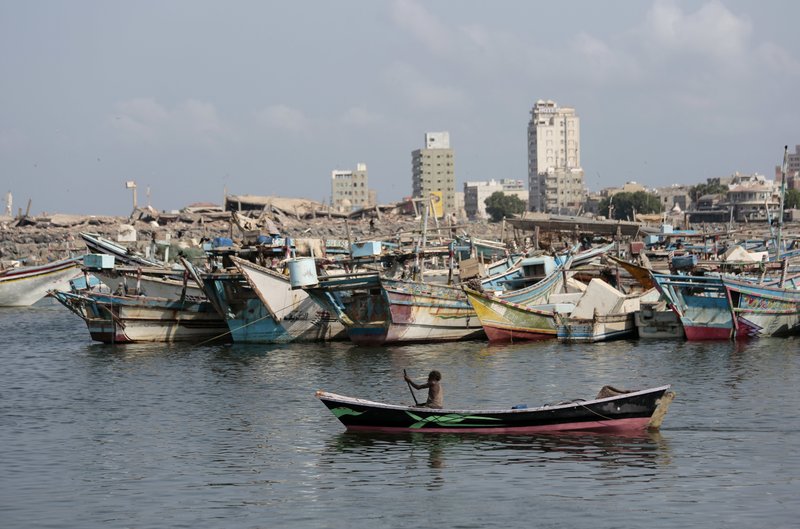CAIRO -- Hundreds of thousands of Yemenis from the Hodeida area have been forced to flee during a Saudi-led coalition offensive to take the key Red Sea port city from Shiite rebels, the United Nations' refugee agency said Friday, as fierce battles continue to rage in the area.
Some 445,000 of Hodeida governorate's residents have fled since June, a figure that underscores the dire situation in and around the city that serves as the main entry point for food and aid, the United Nations High Commissioner for Refugees said. The governorate's population is around 3 million, according to figures from the Norwegian Refugee Council.
The U.N. refugee agency also expressed concern over the safety of those trapped in Hodeida as the intensified military operations "are increasingly confining populations and cutting off exit routes." Figures on those still in Hodeida are difficult to gauge, the agency added.
Yemeni government forces supported by the coalition's air and naval forces continue to engage in heavy fighting with the rebels, known as Houthis. The fighting has killed dozens of combatants from both sides, with dozens of military vehicles destroyed or burning along the front lines.
In a Friday statement, Yemen's internationally recognized government based in the southern city of Aden said its forces are advancing toward the north and west of Hodeida and across all fronts with cover from the coalition.
Also Friday, the World Health Organization said the violence in Hodeida is in close proximity to the city's health facilities, impeding their ability to function and restricting the movement of health staff members, patients and ambulances.
The Saudi-led coalition's latest push toward Hodeida comes as Yemen's civil war is a few months away from entering its fourth year. The coalition intervened in Yemen in March 2015 with the aim of defeating the Iran-aligned rebels and restoring the government of Abed Rabbo Mansour Hadi. But the coalition has recently come under mounting international pressure to end the war that has resulted in what the U.N. says is the world's worst humanitarian crisis.
The fighting around the city, a vital lifeline for most of Yemen's population, threatens to worsen Yemen's dire humanitarian situation and risks the obstruction of crucial assistance to the country endangering the lives of millions of Yemenis.
Meanwhile, the Saudi kingdom announced late Friday that the United States will stop refueling Saudi Arabian aircraft fighting Houthi rebels in Yemen. U.S. officials said earlier Friday that the Pentagon was taking steps to end the arrangement.
Other U.S. officials said the refueling change does not affect the U.S. military assistance and training to improve the Saudi airstrikes. As a result, any decision to halt the U.S. refueling likely will have little effect on the fight.
The officials, who spoke on condition of anonymity to discuss internal deliberations, said Saudi Arabia was already providing 80 percent of its refueling, and its capacity was growing.
The Saudi statement said it had "increased its capability to independently conduct inflight refueling," and therefore "requested cessation of inflight refueling support for its operations in Yemen."
The refueling decision, which was first reported by The Washington Post, has been under discussion for a few weeks, according to the officials. Saudi Arabia has been paying the U.S. for the refueling, but there were no details on how much that cost.
The Pentagon on Friday would say only that the U.S. continues to have discussions with the Saudis, and that there is no decision to report at this time.
Information for this article was contributed by Lolita C. Baldor and Matthew Lee of The Associated Press.
A Section on 11/10/2018

